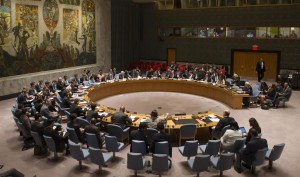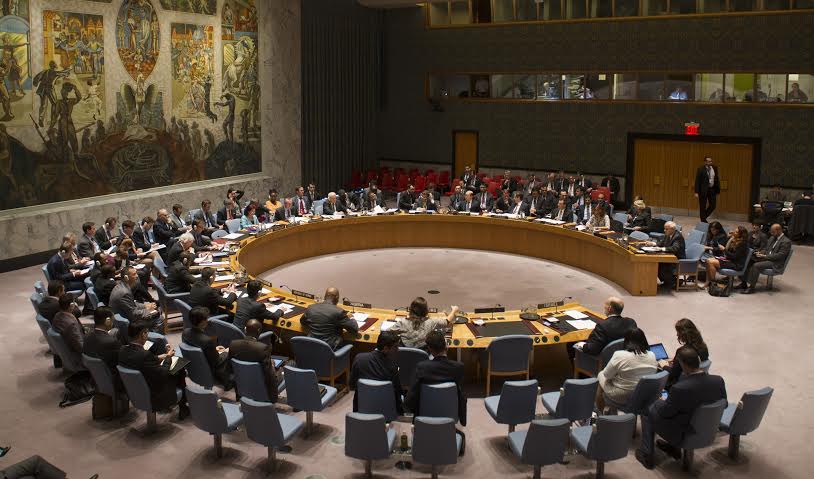 The U.N. Security Council unanimously adopted a new resolution, 2362, authorizing the checking of high sea vessels suspected of smuggling Libyan oil while extending the weapon embargo, other sanctions that impose travel bans and the freezing of assets.
The U.N. Security Council unanimously adopted a new resolution, 2362, authorizing the checking of high sea vessels suspected of smuggling Libyan oil while extending the weapon embargo, other sanctions that impose travel bans and the freezing of assets.
The resolution does not however prevent Libyan authorities from requesting military supplies to continue the fight against terrorism. The members of the Security Council believe that Libya still poses a threat to international peace and have decided to extend the presidency of the group of experts established in 2011 during a NATO-backed uprising against Colonel Muammar Gaddafi.
The Libyan authorities recognized by the U.N. is the Government of National Accord (GNA) led by Prime Minister-designate Fayez Serraj. The military prowess of the GNA is limited compared to the Libyan National Army led by Khalifa Haftar who is loyal to the Tobruk-based House of Representatives.
The North African country has been unstable and it is believed that its oil is being used to finance the chaos that has been ongoing for the past six years. It is unclear how the smuggling of oil will be controlled especially along the Oil Crescent. A Libyan oil source revealed to Reuters on Thursday that production is “close to” reaching 1 million bpd and it would stabilize at the higher end of the range “very soon.” Libya produced more than 1.6 million bpd before a 2011 uprising, and average production has not exceeded 1 million bpd since July 2013.
Among the latest victims to subdue the country’s insecurity were seven members of a U.N. mission in Libya. Their convoy was attacked around 50 kilometers west of the capital on Wednesday before being held hostage but they have been reportedly freed safely and in good health before any negotiations.
